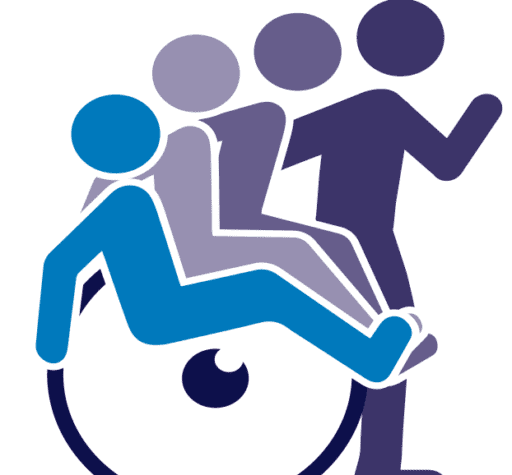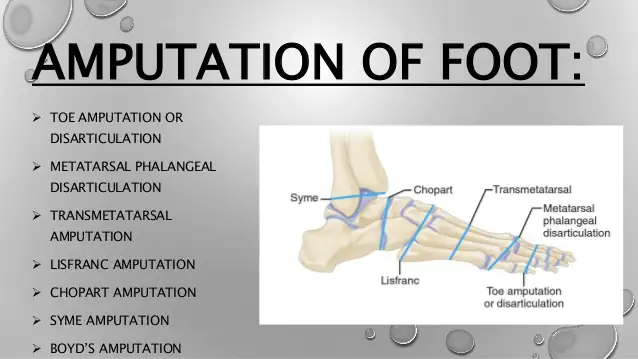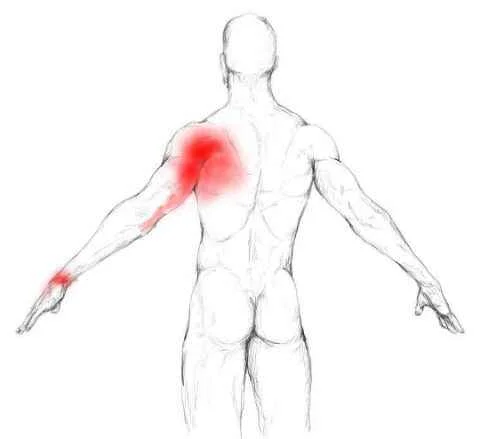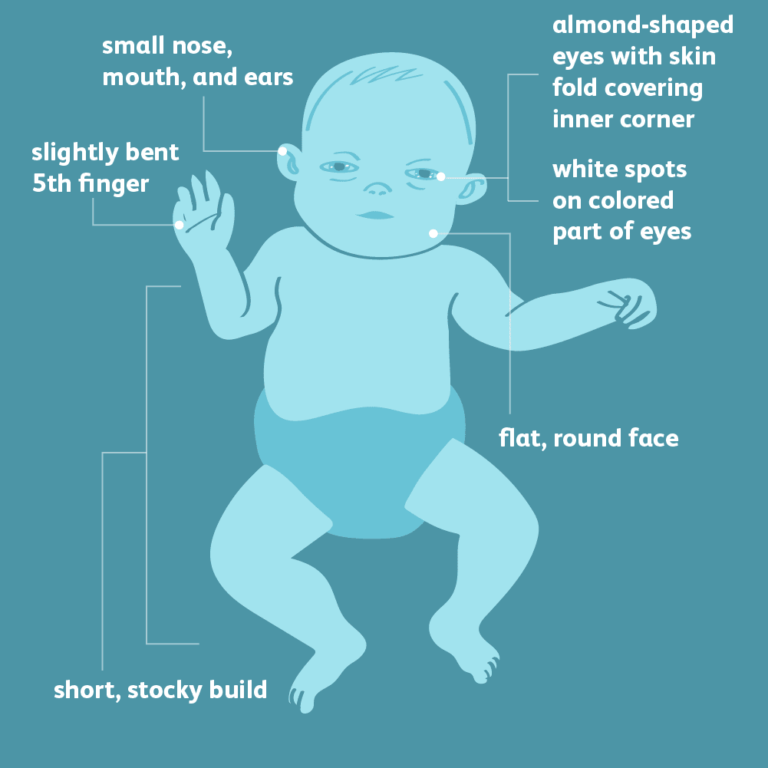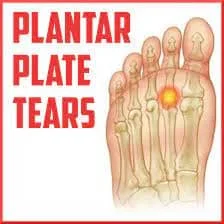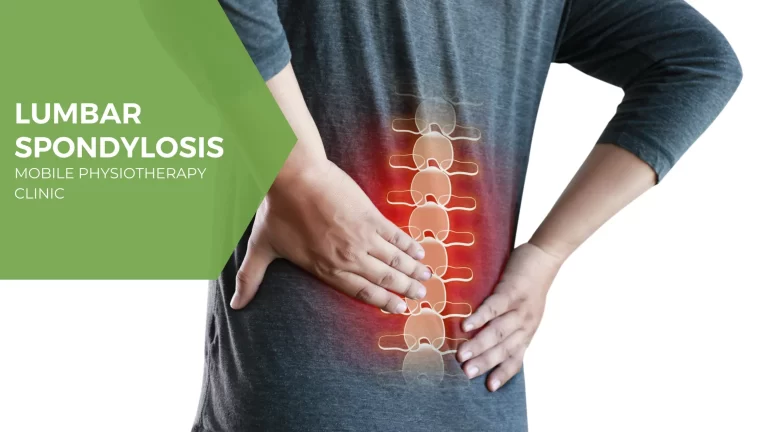Deltoid Muscle Pain
Deltoid muscle pain can occur for various reasons, as the deltoid is the large, triangular muscle that covers the shoulder and is involved in a wide range of arm movements.
Table of Contents
What is a Deltoid Muscle?
A deltoid pain injury can impair arm function and range of motion, making daily tasks like reaching overhead, carrying objects, and getting dressed challenging. The most frequent cause of deltoid pain is damage to the muscle or its surrounding tissues, such as the tendons, bones, or nerves.
Getting medical help may be the first step toward a remedy if deltoid pain is interfering with your day-to-day activities. You can regain arm function and guarantee a speedy recovery by identifying the underlying reason for your deltoid pain and selecting the best course of action.
Causes of Deltoid Pain?
Usually, damage to the muscle or surrounding structures causes deltoid pain. This could include, among other things, a strained muscle, a nerve injury, or issues with your rotator cuff.
Muscle Strain
When the muscular fibers are overstretched or damaged, a deltoid muscle strain results. Forceful motions, such as carrying heavy objects incorrectly or falling on an outstretched arm, can cause muscle strains to occur rapidly. They can also build gradually as a result of overuse and repetitive motions, including playing sports or doing workouts that put too much strain on the deltoid muscle.
Athletes and people who perform repetitive deltoid exercises, including heavy lifting or reaching above regularly, are more likely to sustain deltoid strains.
- A dull, throbbing ache that gets worse when you move or do specific things
- Stiffness or pain in the muscles
- Cramping or spasms
Rotator Cuff Injuries
One typical reason for deltoid muscle pain is a rotator cuff rupture, which happens when one of the rotator cuff tendons separates from the arm bone.
Your shoulder’s range of motion may be restricted by a rotator cuff tear, which forces your deltoid muscle to work harder to maintain shoulder mobility and make up for the rotator cuff’s lack of function. Deltoid pain, stiffness, and soreness may result from this. The most common causes of rotator cuff problems are overuse or aging-related natural wear and tear. The following are signs of this kind of injury:
- Pain when performing specific tasks, including raising or lowering your arm
- Weakness or pain in the arms
Axillary Nerve Injury
Surgery, humerus fractures, and shoulder dislocations can all cause damage to the axillary nerve. Inappropriate crutch use or systemic (body-wide) medical disorders that result in inflammation of the nerves can also cause this kind of injury.
Symptoms could include the following, depending on how severe the nerve injury is:
- tingling or numbness in the deltoid muscle
- Sharp shoulder pain that shoots
- restricted movement in the affected arm
- weakening of the muscles, particularly while elevating your arm or doing other specific movements.
Deltoid Rupture
The deltoid muscle may tear completely or partially away from its attachment to the shoulder, collarbone, or shoulder blade in an uncommon but dangerous injury known as a deltoid rupture. Deltoid rupture symptoms include:
- A snapping or tearing noise, followed by excruciating shoulder ache
- Shoulder redness, warmth, and swelling
- The incapacity to raise and move the arm or arm weakness
Shoulder Impingement Syndrome
When a tendon inside the shoulder presses against adjacent bone and soft tissues, it can cause shoulder impingement syndrome, which is painful. Shoulder impingement typically causes pain in the anterior (front) and lateral (middle) regions of the deltoid muscle.
Shoulder impingement syndrome can be exacerbated by repetitive overhead actions, such as lifting, painting, baseball, tennis, and swimming. This condition’s symptoms include:
- Pain that suddenly gets worse when lifting and reaching overhead
- Nighttime aching pain and arm weakness
- Limited range of motion
- Reaching aloft or buttoning or zipping clothes can be challenging.
Symptoms of Deltoid Muscle Pain?
The front, side, or back of the shoulder may hurt or feel sensitive when the deltoid muscle is injured, especially while lifting the arm.
The deltoid muscle may tear in certain situations, resulting in bruising and edema.
Depending on how severe they are, strains are graded 1–3:
- Grade 1: Tightness in the muscle and little edema are the hallmarks of these minor strains. Although there may be some minor Deltoid pain when using the arm, the range of motion is frequently unrestricted.
- Grade 2: A grade 2 strain usually manifests as increased pain, edema, and restricted movement.
Diagnosis of Deltoid Muscle Pain?
It can be helpful to know what to anticipate at your appointment if you choose to seek medical attention for your pain. A study of medical history, physical examination, and imaging studies are necessary to determine the source of deltoid pain.
Your healthcare provider will examine your shoulder and deltoid muscles to look for any indications of damage, such as deformity, edema, or pain, after learning more about your symptoms. To assess the strength and range of motion in your shoulder, they can ask you to move your arm in specific ways.
In order to make an accurate diagnosis, your healthcare professional could prescribe diagnostic tests based on what they saw during the physical examination. These examinations could consist of:
- X-rays: Produce pictures of your shoulder bones to look for fractures or other ailments including joint dislocation.
- To evaluate injuries, a computed tomography (CT) scan creates comprehensive images of the deltoid muscle, surrounding bones, and soft tissues by combining numerous X-ray images with computer technology.
- To detect and diagnose injuries or nerve compression, a magnetic resonance imaging (MRI) scan produces fine-grained images of the deltoid muscle and surrounding structures.
- Electromyography (EMG) measures the electrical activity of the deltoid muscle and axillary nerve both at rest and during movement to detect damage to the muscle or nerve.
- investigations of nerve conduction and electromyography (EMG).
Treatment of Deltoid Muscle Pain
Thankfully, there are a number of ways to alleviate deltoid pain. The origin of your symptoms and the degree of your ailment determine the course of treatment for deltoid pain. In general, your provider might suggest medical treatments, home cures, or a mix of the two.
Home Remedies
Self-care techniques can aid in the relief of deltoid pain. While you wait for your injury to heal, home remedies can usually be sufficient to lessen pain. These consist of:
- Rest: To help the shoulder muscle repair and stop more injury, avoid activities that make it hurt.
- Ice and heat therapy: To improve blood flow to the deltoid muscle, apply an ice pack to it for 15 minutes at a time.
- A heating pad can be used.
- OTC (over-the-counter) analgesics: Use pain and inflammation-reducing drugs like Advil (ibuprofen) or Aleve (naproxen), or try applying Salonpas (capsaicin) patches directly to your shoulder to ease muscular soreness.
- Try these light stretches to increase the range of motion and flexibility of your shoulders.
- Good posture: To lessen the strain on the deltoid muscle and the surrounding ligaments and tendons, maintain good posture.
Medical Treatments:
When home cures fail to relieve severe pain or more serious injuries, medical therapies can assist in relieving deltoid pain.
- Prescription drugs: For more severe deltoid pain, stronger painkillers or anti-inflammatory drugs may be helpful.
- Injections of corticosteroids: Corticosteroids can be injected directly into the deltoid muscle or surrounding tissue to ease pain and reduce inflammation.
Physical Therapy Treatments:
- To avoid more injuries, a physical therapist can assist you in performing exercises that increase the deltoid muscles and your shoulder’s strength, flexibility, and stability.
- Almost always, physical therapy is advised to relieve deltoid pain.
- The intensity of your pain and whether you have any underlying medical concerns will determine the ideal workout program for you.
- Your deltoid muscle soreness can be alleviated by following an exercise regimen tailored by a physical therapist who specializes in treating shoulder issues.
- Your deltoid pain may be relieved by stretching, mild resistance training, and progressive conditioning.
- In addition to helping to relieve deltoid pain, these exercises can strengthen your core and deltoid muscles and improve your posture, both of which are good for your general health.
- A well-tailored workout program can help reduce deltoid pain, strengthen your shoulder, and enable you to return to your regular activities and daily life without experiencing deltoid muscle pain.
Surgery Treatments:
Surgery may be necessary to restore the damaged deltoid muscle or treat the underlying cause of deltoid pain in certain situations, such as a deltoid rupture, rotator cuff injury, or shoulder impingement.
Preventing Muscle Deltoid Pain?
There are things you may do to prevent your shoulder injury from worsening if you are currently dealing with minor deltoid pain.
You should constantly warm up before any exercise or physical therapy, take days off or alternate days when you work out various portions of your body to relax your shoulders and other muscle groups and stretch every day to increase your range of motion, flexibility, and shoulder rotation.
FAQs
Use topical gels or creams first. Without the use of tablets, products containing 10% menthol (Icy Hot, BenGay) or diclofenac (Voltaren) may reduce pain. Try some other over-the-counter pain relievers if those don’t help. These consist of naproxen sodium (Aleve), ibuprofen (Advil, Motrin IB, and others), and acetaminophen (Tylenol, among others).
As long as the shoulder is rested and not re-injured, recovery from a Grade 2 deltoid strain should take four to six weeks.
While their shoulders recover, many people including athletes may need to cut back on the length and intensity of their workouts or sporting activities. To lessen pain, swelling, and inflammation, people can also take over-the-counter anti-inflammatories such as naproxen or ibuprofen.
Home treatments for deltoid pain, such as rest, ice therapy, and mild stretches, can work well. However, in order to aid in your recuperation, your healthcare practitioner can suggest medical interventions like medication, physical therapy, or surgery if your pain is severe or ongoing.
Exercises involving pushing or overhead motions should be avoided at first for those who have shoulder issues.
With the right, conservative care, shoulder pain will usually go away over time. Surgery, however, can be necessary in certain situations. When it comes to shoulder surgery, the efforts you have already made to try to alleviate your shoulder pain such as physical therapy are crucial.
Usually, when you try to elevate your arm, a stretched deltoid generates a strong pain or pain in your shoulder. Your shoulder may be hurting in the front, side, or back. Depending on how severe the strain is, it might range from a slight ache to a severe, incapacitating pain.
A Basic Guide to Muscle Pain Management for Deltoid Pain
While a physical therapy program, along with some gentle stretching and massage, can help you regain functioning and flexibility, resting the injured shoulder, using ice, and taking over-the-counter anti-inflammatory medications can all help to ease the pain.
References
- Whnp-Bc, L. S. M. B. (2023, July 19). Deltoid pain: Types and treatment. https://www.medicalnewstoday.com/articles/322031
- Hersh, E. (2018, September 18). Managing and Recovering from Deltoid Pain. Healthline. https://www.healthline.com/health/deltoid-pain
- Garewal, D. (2021, January 3). Deltoid Pain: A Simple Guide to Muscle Pain & Relief. Melbourne Arm Clinic. https://melbournearmclinic.com.au/deltoid-pain/
- Curtis, L. (2024, June 12). What To Know and Do About Deltoid Pain. Health. https://www.health.com/deltoid-pain-8659838
